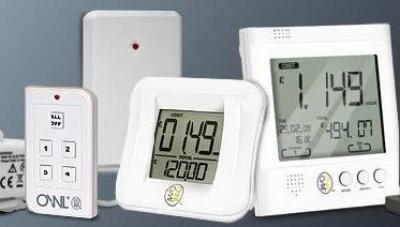Cisco: Smart Grid Means Less Cash For Utilities

Cisco is continuing its push for a slice of the smart grid market and is working closely with utility companies on issues such as security
The drive towards developing so-called smart grid technology across Europe will effectively require utility companies to implement technology that will eat into their revenues, according to networking specialist Cisco.
Utility providers are concerned that smart grids will empower customers with more sophisticated energy management technology, which will lose them revenue, according to Christian Feisst, director of Smart Grids at Cisco Internet Business Solutions Group, who spoke to eWeek Europe UK this week about Cisco’s progress in smart grid technology.
“Utility companies do think about consumers in this debate and believe that if they don’t help consumers with energy management someone else will,” he said. “But smart grid is about improving the efficiency of the system and reducing consumption which by definition lowers revenue for you and it’s the utilities that have to do the investment if you want to have a smart grid becoming a reality.”
Feisst’s remarks follow allegations that UK utilities are lobbying against giving out smart meters that would help users cut their consumption. He added that o governments should compensate energy providers in some way for the loss in revenues that they will probably incur from implementing smart grid technology.
“We need to think about for our governments and policy makers what is the right framework to incentivise utility companies ability to implement energy efficiency measures. Today if a utility implements a whole energy management system that helps to lower customers’ bills then it doesn’t really help the utility so the utilities need some incentives to create a win-win situation.”
Legislation to mandate the use of smart grid technology is being led by European authorities. The EU energy package officially came into force on 3 September and consists of two Directives and three Regulations around energy efficiency. Both the gas and electricity directives stipulate that the Member States ensure the implementation of ‘intelligent metering systems that shall assist the active participation of consumers’ in the gas and electricity supply markets respectively. The electricity Directive sets a timeline of 80 percent coverage by 2020 and every European household equipped with smart meters by 2022. For its part, the UK government has committed to roll out smart meters to every household by 2020.
“To create such an infrastructure, it’s essential that businesses and government work together – and to accelerate the evolution of the smart grid, it’s crucial for all parties to agree on a path forward that will ensure the interoperability of systems, devices and applications, based on already existing standards like IP, also for the benefit of the residential customer,” said Martin Vesper, executive director of German utility company Yello Strom which is partnering with Cisco on its smart grid efforts.
Cisco announced a plan in May to bring its networking expertise to the smart grid space. Cisco officials estimate that creating more efficient power grids could grow into a $20-billion-a-year business for Cisco within five years. Power distribution is one of 30 “market adjacencies” Cisco chief executuive John Chambers said during a keynote speech at the Cisco Live 2009 event in June that his company would pursue.
In August Cisco announced that it was teaming up with Landis+Gyr, a Switzerland-based maker of energy metering technology, to develop solutions for smart grid environments and has also teamed up with IBM recently on a pilot project to bring new smart meters and home energy management systems to 500 households in Amsterdam.

This week’s announcement is a reiteration of Cisco’s ambitions in the smart grid arena and includes details of a new advisory board of international utility companies which Cisco plans to meet with four times a year – twice physically and twice virtually using the networking specialists Telepresence technology. However Feisst admitted that Cisco hasn’t been able to sell its high-end videoconferencing technology – which can cost hundreds of thousands of pounds depending on the installation – to all its utility partners yet and they would be traveling to Cisco office to make use of the systems.
The advisory board met for the first time in Berlin this week for a face to face discussions over a wide-range of issues to do with smart grid development according to Reiss including the issue of security. In March this year, researchers from US security consultancy IOActive created a worm that could spread from one smart metering device to another thanks to the wireless technology that is used to connect them.
“We had an interesting debate yesterday with our customers,” he said. “One thing is you hack one smart meter but nothing much will happen in the system as neither the financial or the technical impact is significant. But it could be significant if you manage to hack all the meters in a certain region and that must be avoided. At the moment all the smart meters have the same encryption key so once you break into one smart meter you are theoretically able to break into all of them which should not be the case. Something we learned from the internet is don’t have one encryption key for all the devices but separate keys for each device. This is not something ulities have needed to consider before but we can help them with.”
Cisco said it has also developed a Smart Grid Ecosystem of 25 IT partners and system integrators including IBM which the company has already collaborated with on several smart grid projects. The aim is to help develop standards around smart grids which have already attracted some disagreements around technology choices. Last month the UK’s Local Government Association accused a coalition of power companies of lobbying the government to block the inclusion of wireless display units in the smart meter scheme.
